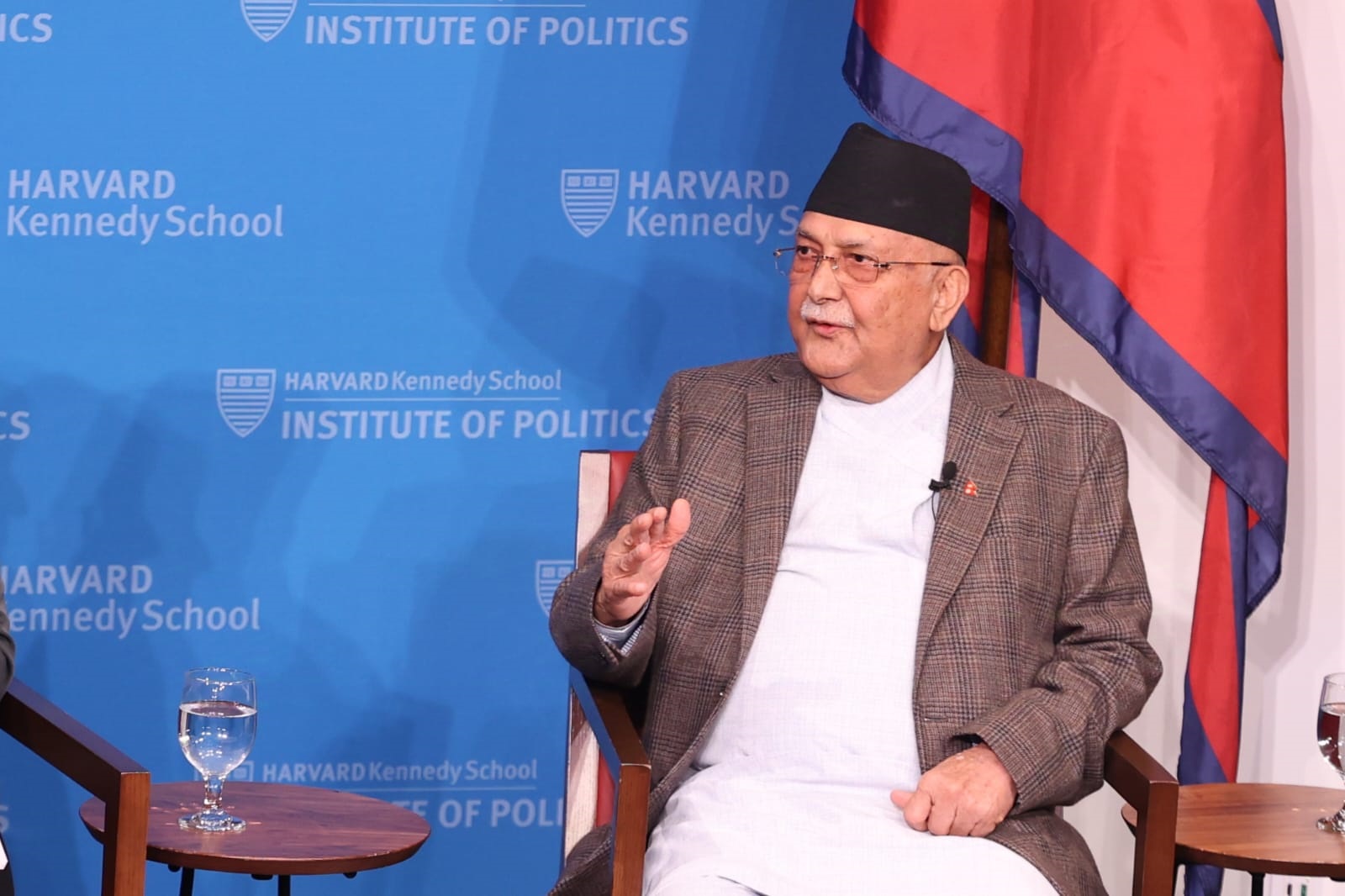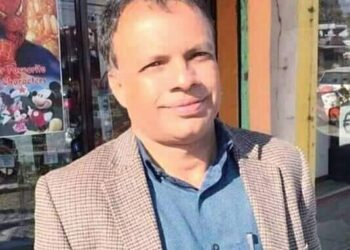BOSTON: Prime Minister KP Sharma Oli has reaffirmed that amnesty will not be granted for serious crimes committed during Nepal’s armed conflict as part of finalizing the transitional justice process.
Speaking at a program organized at Harvard University after arriving in Boston from New York, where he participated in the 79th United Nations General Assembly, Oli clarified that the transitional justice process recently passed by Parliament will safeguard the rights and interests of victims, including providing legal remedies.
Oli noted that, following the formation of his government with the participation of two major parties, the Truth and Reconciliation Commission (TRC) and the Commission on the Investigation of Enforced Disappeared Persons (CIEDP) bills were passed with near-unanimous support in Parliament.
“Nepal’s peace process is a fundamental process that we have led and adopted nationally. The ‘Peace Agreement’ made by all the left-wing and democratic political parties is also unique in that regard,” Oli stated.
As Nepal enters the final phase of its peace process, Oli expressed his openness to support and encouragement from the international community and other partners for the effective implementation of the new law. He emphasized his commitment to ending violence, healing the wounds of the conflict, and helping the society move forward in the spirit of reconciliation, peace, and harmony.
Prime Minister Oli informed that Nepal is a naturally non-violent, tolerant and peaceful society as it is the birthplace of Gautam Buddha, the promoter of peace.
Additionally, the Prime Minister discussed the issue of climate justice—something he has raised in international forums like the United Nations—before professors and students at the university.
Responding to students’ questions, Oli rejected the notion that Nepal’s youth solely go abroad for work and that the country’s economy is entirely dependent on remittances, asking them to also consider the rising number of youth returning to Nepal.
He further mentioned that initiatives such as the ‘Start-Up’ program have been launched to boost employment and entrepreneurship among the country’s youth. Oli expressed confidence that Nepal’s economic development would be supported through balanced relations and cooperation with both of its neighboring countries.
He also reflected on the constitution-building process, acknowledging that many demands and issues could not be addressed all at once, but noted that the constitution has already been amended twice based on necessity and could be amended again if needed.









Comment